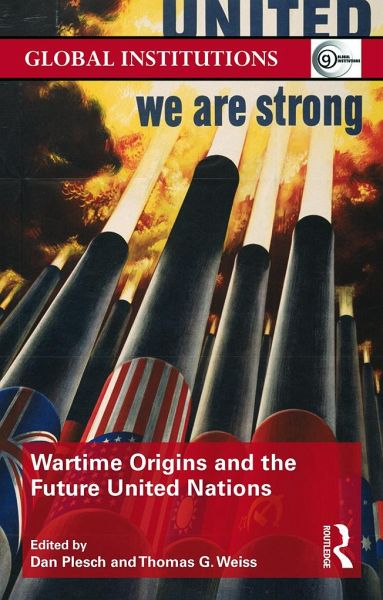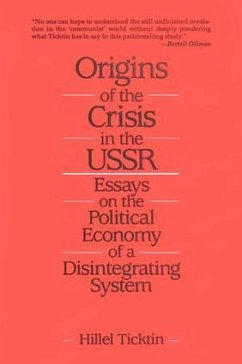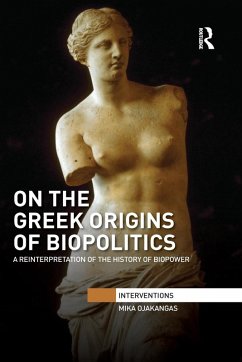
Wartime Origins and the Future United Nations
Versandkostenfrei!
Versandfertig in 1-2 Wochen
61,99 €
inkl. MwSt.
Weitere Ausgaben:

PAYBACK Punkte
31 °P sammeln!
The creation of the UN system during World War II is a largely unknown or forgotten story among contemporary decision makers, international relations specialists, and policy analysts. This book aims to recover the wartime history of the United Nations and explore how the forgotten past can shed light on a possible and more desirable future. To achieve this, each chapter takes three snapshots: "Then," the imaginative and transnational thinking about solutions to post-war problems demonstrated a realization that victory in WW II required an intergovernmental "system" with enough power and compet...
The creation of the UN system during World War II is a largely unknown or forgotten story among contemporary decision makers, international relations specialists, and policy analysts. This book aims to recover the wartime history of the United Nations and explore how the forgotten past can shed light on a possible and more desirable future. To achieve this, each chapter takes three snapshots: "Then," the imaginative and transnational thinking about solutions to post-war problems demonstrated a realization that victory in WW II required an intergovernmental "system" with enough power and competence to work-that is, the UN was not established as a liberal plaything and public relations ploy but rather as a vital necessity for post-war order and prosperity. "Now," which often seems a pale imitation of wartime thinking that nonetheless reflects a growing and widespread recognition of the fundamental disconnect between the nature of trans-boundary problems and current solutions seen as feasible by 193 UN member states. "Next steps," or the collective wisdom about the range of new thinking and new institutions that, in fact, may well have antecedents in wartime thinking and experimentation and could be labelled blue-prints for a "third generation" of intergovernmental organizations. This work will be essential reading for all students and scholars of the United Nations, International Organizations and Global Governance.













![The Origins and Destiny of Imperial Britain [microform]: Nineteenth Century Europe Cover The Origins and Destiny of Imperial Britain [microform]: Nineteenth Century Europe](https://bilder.buecher.de/produkte/66/66199/66199543n.jpg)
